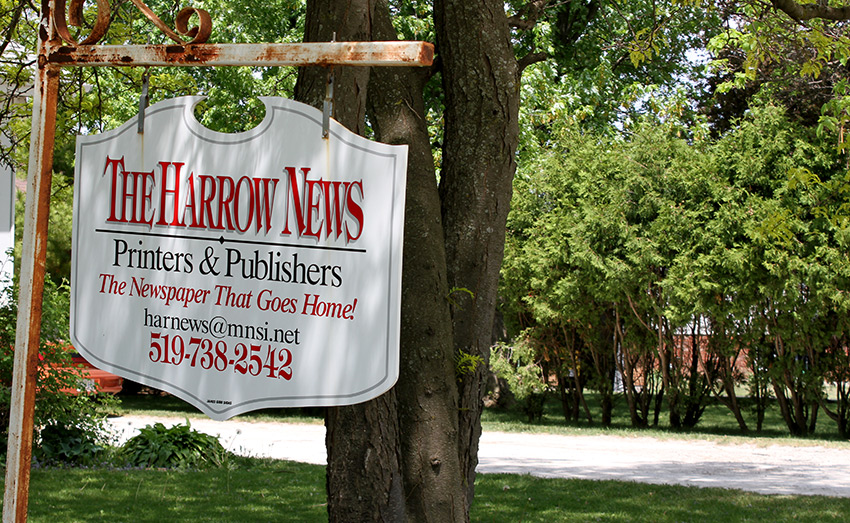 Just over a year ago I experienced the rush of excitement that came with having my first novel, “The Book of Answers” included on the short list for the “Unhanged Arthur”. It’s a prize for unpublished crime novels, co-sponsored by Dundurn Press and Crime Writers of Canada.
Just over a year ago I experienced the rush of excitement that came with having my first novel, “The Book of Answers” included on the short list for the “Unhanged Arthur”. It’s a prize for unpublished crime novels, co-sponsored by Dundurn Press and Crime Writers of Canada.
Link to announcement of nominations
 I had a great time at the awards banquet. It was held in the banquet hall of Toronto’s historic Arts and Letters Club, which felt a lot like Hogwarts.
I had a great time at the awards banquet. It was held in the banquet hall of Toronto’s historic Arts and Letters Club, which felt a lot like Hogwarts.
I was not at all shocked when another book, The Scarlet Cross, by Liv McFarlane won the award. For me, it was more than enough to make the move from the “long list” of ten, to the “short list” of five authors from across Canada whose work was considered for this honour.
It did come as a surprise that all five finalist’s works were to be read by the acquisitions team at Dundurn. They are a Canadian publishing house with an impressive list of books and authors.
I have had good, and useful feedback on my first serious effort, and I continue to learn the craft. My writing mentor said most first novels don’t end up being published. I am okay with that, and have moved on to work on a second story, tentatively called “The Book of Secrets”. It involves some of the characters from the first novel.
The editors at Dundurn might not be waiting with anticipation, but I look forward to sending them the new one to consider, when the time comes. (I just checked their website, and Dundurn is not currently inviting new submissions, so I guess there’s no great hurry!)
As one of my fellow nominees, Heather McLeod noted recently, fiction writers in this strange time have to contend creatively with the pandemic. Do they set their story before COVID-19, during, or after?
For me, it seems too soon to write about life after COVID-19. I have seen new micro-fiction set “during”, which captures some of the mood, and the questions of this time.
My first novel was set roughly in modern day. (Which was pre-COVID-19) That was the plan with my current effort, but I have found it hard to make the mental leap back into a world (even a fictional one) in which people are not worried about physical distancing and quarantines.
It’s the same problem I watching tv shows and movies, unless they are clearly historical pieces. What are they doing on that crowded street?
I do want to get back to the work (play) of writing about my protagonist, Tom Book, and his family and friends (and enemies). Whenever I do make the dive into the part of my brain where imaginary world lives, it’s still an interesting place to be.

 December 1, 2019 First Week of Advent – Day One of the Advent Alphabet- Rev. Darrow Woods
December 1, 2019 First Week of Advent – Day One of the Advent Alphabet- Rev. Darrow Woods
 The dining room at St. George’s Hall, home since 1908 to Toronto’s Arts and Letters Society, has an ancient grandeur to it. Dark paneled walls, heavy wooden furniture, and leaded glass windows set high above us. It would make a great setting for an Agatha Christie novel, or a Sherlock Holmes story.
The dining room at St. George’s Hall, home since 1908 to Toronto’s Arts and Letters Society, has an ancient grandeur to it. Dark paneled walls, heavy wooden furniture, and leaded glass windows set high above us. It would make a great setting for an Agatha Christie novel, or a Sherlock Holmes story. unced. I was one of five authors whose unpublished crime novels made the short list for an award sponsored by Dundurn Press. The nominations in our category included:
unced. I was one of five authors whose unpublished crime novels made the short list for an award sponsored by Dundurn Press. The nominations in our category included: Jim Bottomley, Hypnotizing Lions
Jim Bottomley, Hypnotizing Lions The photo next to this paragraph is of me with Heather McLeod, who travelled with her mother (a librarian!) all the way from B.C. for the awards banquet.
The photo next to this paragraph is of me with Heather McLeod, who travelled with her mother (a librarian!) all the way from B.C. for the awards banquet. program. She also found time to introduce me to a number of her fellow authors, as well as other prominent people in the Canadian publishing scene.
program. She also found time to introduce me to a number of her fellow authors, as well as other prominent people in the Canadian publishing scene.
 My more personal “reading” has actually been listening to Natalie Goldberg read a commemorative edition of her book “Writing Down the Bones”, which is about a Zen approach to writing. I love that at the end of each chapter, she sets down the script, and talks about how it felt to read that section.
My more personal “reading” has actually been listening to Natalie Goldberg read a commemorative edition of her book “Writing Down the Bones”, which is about a Zen approach to writing. I love that at the end of each chapter, she sets down the script, and talks about how it felt to read that section.
 he chameleon-like capacity to shift its appearance. Because I was using my phone to listen to Natalie Goldberg’s book, I was able to take a photo before the toad scampered away, and disappeared under some brush.
he chameleon-like capacity to shift its appearance. Because I was using my phone to listen to Natalie Goldberg’s book, I was able to take a photo before the toad scampered away, and disappeared under some brush.
 While compliling these notes from today’s reading of The Universal Christ, I heard an unusual song, that repeated the line “we are living in the absence of the sacred” several times. I was listening to one of my favourite internet radio stations, which is the live feed from WWOZ in New Orleans.
While compliling these notes from today’s reading of The Universal Christ, I heard an unusual song, that repeated the line “we are living in the absence of the sacred” several times. I was listening to one of my favourite internet radio stations, which is the live feed from WWOZ in New Orleans. 

 I was interviewed today, by Shelby Wye, who writes for The Harrow News, a great local paper that serves the town where I work as the United Church minister. When Shelby called to set our time to meet, I asked if we could do the interview after I finished lunch at the Harrow branch of the Royal Canadian Legion. They have a lunch special on “Wacky Wednesdays” that can’t be beat, and I’d planned to go there with a group from the church, when they finished cleanup from a pie-making bee. (The church operates a pie booth at the Harrow Fall Fair that is a huge fund-raiser for our work in the community.)
I was interviewed today, by Shelby Wye, who writes for The Harrow News, a great local paper that serves the town where I work as the United Church minister. When Shelby called to set our time to meet, I asked if we could do the interview after I finished lunch at the Harrow branch of the Royal Canadian Legion. They have a lunch special on “Wacky Wednesdays” that can’t be beat, and I’d planned to go there with a group from the church, when they finished cleanup from a pie-making bee. (The church operates a pie booth at the Harrow Fall Fair that is a huge fund-raiser for our work in the community.) My first mystery novel, The Book of Answers, made the short-list for The Unhanged Arthur Ellis, an award for unpublished crime fiction. The annual competition is sponsored by Dundurn Press and CrimeWriters of Canada. On May 23, my wife and I attended a banquet at Toronto’s Arts and Letters Club, where I had the honour of meeting other authors who were nominated, as well as a number of editors, publishers, and authors. It was great fun!
My first mystery novel, The Book of Answers, made the short-list for The Unhanged Arthur Ellis, an award for unpublished crime fiction. The annual competition is sponsored by Dundurn Press and CrimeWriters of Canada. On May 23, my wife and I attended a banquet at Toronto’s Arts and Letters Club, where I had the honour of meeting other authors who were nominated, as well as a number of editors, publishers, and authors. It was great fun!